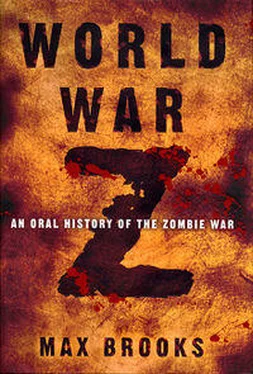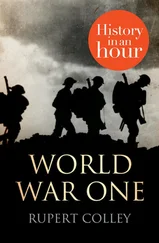What about the captain? Did he have family?
His wife had left him in the early eighties. It was a devastating scandal, especially in those days. It still astounds me how he managed to both salvage his career and raise his son.
He had a son? Did he come with you?
[Xu evades the question.]
The worst part for many others was the waiting, knowing that even if they managed to make it to Qingdao, there was a very good chance that we might have already sailed. Imagine the guilt. You ask your family to come to you, perhaps leave the relative safety of their preexisting hideout, and arrive only to be abandoned at the dock.
Did many of them show up?
More than one would have guessed. We smuggled them aboard at night, wearing uniforms. Some-children and the elderly-were carried in supply crates.
Did the families know what was happening? What you were intending to do?
I don’t believe so. Every member of our crew had strict orders to keep silent. Had the MSS even had a whiff of what we were up to, the living dead would have been the least of our fears. Our secrecy also forced us to depart according to our routine patrol schedule. Captain Chen wanted so badly to wait for stragglers, family members who might be perhaps only a few days, a few hours, away! He knew it might have jeopardized everything, however, and reluctantly gave the order to cast off. He tried to hide his feelings and I think, in front of most, he might have gotten away with it. I could see it in his eyes though, reflecting the receding fires of Qingdao.
Where were you headed?
First to our assigned patrol sector, just so everything would initially seem normal. After that, no one knew.
A new home, at least for the time being, was out of the question. By this point the blight had spread to every corner of the planet. No neutral country, no matter how remote, could guarantee our safety.
What about coming over to our side, America, or another Western country?
[He flashes a cold, hard stare.]
Would you ? The Zheng carried sixteen JL-2 ballistic missiles; all but one carried four multiple reentry warheads, with a ninety-kiloton yield. That made her equivalent to one of the strongest nations in the world, enough power to murder entire cities with just the turn of a key. Would you turn that power over to another country, the one country up until that point that had used nuclear weapons in anger? Again, and for the last time, we were not traitors. No matter how criminally insane our leadership might have been, we were still Chinese sailors.
So you were alone.
All alone. No home, no friends, no safe harbor no matter how harsh the storm. The Admiral Zheng He was our entire universe: heaven, earth, sun, and moon.
That must have been very difficult.
The first few months passed as though it was merely a regular patrol. Missile subs are designed to hide, and that’s what we did. Deep and silent. We weren’t sure if our own attack subs were out looking for us. In all probability our government had other worries. Still, regular battle drills were conducted and the civilians trained in the art of noise discipline. The chief of the boat even rigged special soundproofing for the mess hall so it could be both a schoolroom and play area for the children. The children, especially the younger ones, had no idea what was happening. Many of them had even traveled with their families across infested areas, some barely escaping with their lives. All they knew was that the monsters were gone, banished to their occasional nightmares. They were safe now, and that’s all that mattered. I guess that is how we all felt those first few months. We were alive, we were together, we were safe. Given what was happening to the rest of the planet, what more could we want?
Did you have some way of monitoring the crisis?
Not immediately. Our goal was stealth, avoiding both commercial shipping lanes and submarine patrol sectors… ours, and yours. We speculated, though. How fast was it spreading? Which countries were the most affected? Was anyone using the nuclear option? If so, that would be the end for all of us. In a radiated planet, the walking dead might be the only creatures left “alive.” We weren’t sure what high doses of radiation would do to a zombie’s brain. Would it eventually kill them, riddling their gray matter with multiple, expanding tumors? That would be the case for a regular human brain, but since the livingdead contradicted every other law of nature, why should this reaction be any different? Some nights in the wardroom, speaking in low voices over our off-duty tea, we conjured images of zombies as fast as cheetahs, as agile as apes, zombies with mutated brains that grew and throbbed and burst from the confines of their skulls. Lieutenant Commander Song, our reactor officer, had brought aboard his water-colors and had painted the scene of a city in ruins. He tried to say that it wasn’t any city in particular but we all recognized the twisted remains of the Pudong skyline. Song had grown up in Shanghai. The broken horizon glowed a dull magenta against the pitch-black sky of nuclear winter. A rain of ash peppered the islands of debris that rose from lakes of melted glass. Snaking through the center of this apocalyptic backdrop was a river, a greenish-brown snake that rose up into a head of a thousand interconnected bodies: cracked skin, exposed brain, flesh dripping from bony arms that reached out from openmouthed faces with red, glowing eyes. I don’t know when Commander Song began his project, only that he secretly unveiled it to a few of us after our third month at sea. He never intended to show it to Captain Chen. He knew better. But someone must have talked and the Old Man soon put a stop to it.
Song was ordered to paint over his work with something cheerful, a summer sunset over Lake Dian. He then followed up with several more “positive” murals on any space of exposed bulkhead. Captain Chen also ordered a halt to all off-duty speculation. “Detrimental to the morale of the crew.” I think it pushed him, though, to reestablish some semblance of contact with the outside world.
Semblance as in active communication, or passive surveillance?
The latter. He knew Song’s painting and our apocalyptic discussions were the result of our long-term isolation. The only way to quell any further “dangerous thought” was to replace speculation with hard facts. We’d been in total blackout for almost a hundred days and nights. We needed to know what was happening, even if it was as dark and hopeless as Song’s painting.
Up until this point, our sonar officer and his team were the only ones with any knowledge of the world beyond our hull. These men listened to the sea: the currents, the “biologies” such as fish and whales, and the distant thrashing of nearby propellers. I said before that our course had taken us to the most remote recesses of the world’s oceans. We had intentionally chosen areas where no ship would normally be detected. Over the previous months, however, Liu’s team had been collecting an increasing number of random contacts. Thousands of ships were now crowding the surface, many of them with signatures that did not match our computer archive.
The captain ordered the boat to periscope depth. The ESM mast went up and was flooded with hundreds of radar signatures; the radio mast suffered a similar deluge. Finally the scopes, both the search and main attack periscopes, broke the surface. It’s not like you see in the movies, a man flipping down the handles and staring through a telescopic eyepiece. These scopes don’t penetrate the inner hull. Each one is a video camera with its signal relayed to monitors throughout the boat. We couldn’t believe what we were seeing. It was as if humanity was putting everything they had to sea. We spotted tankers, freighters, cruise ships. We saw tugboats towing barges, we saw hydrofoils, garbage scows, bottom dredgers, and all of this within the first hour.
Читать дальше












